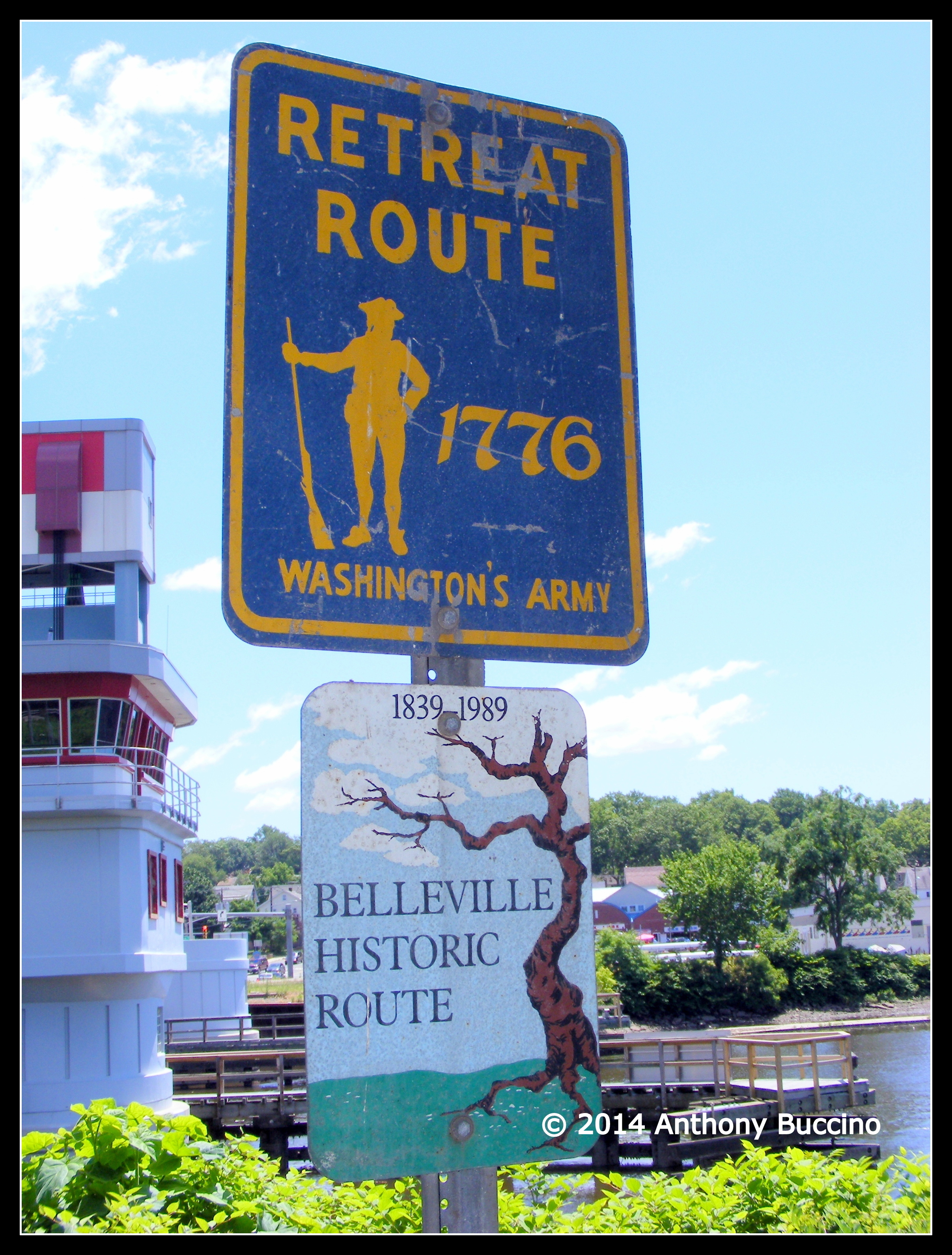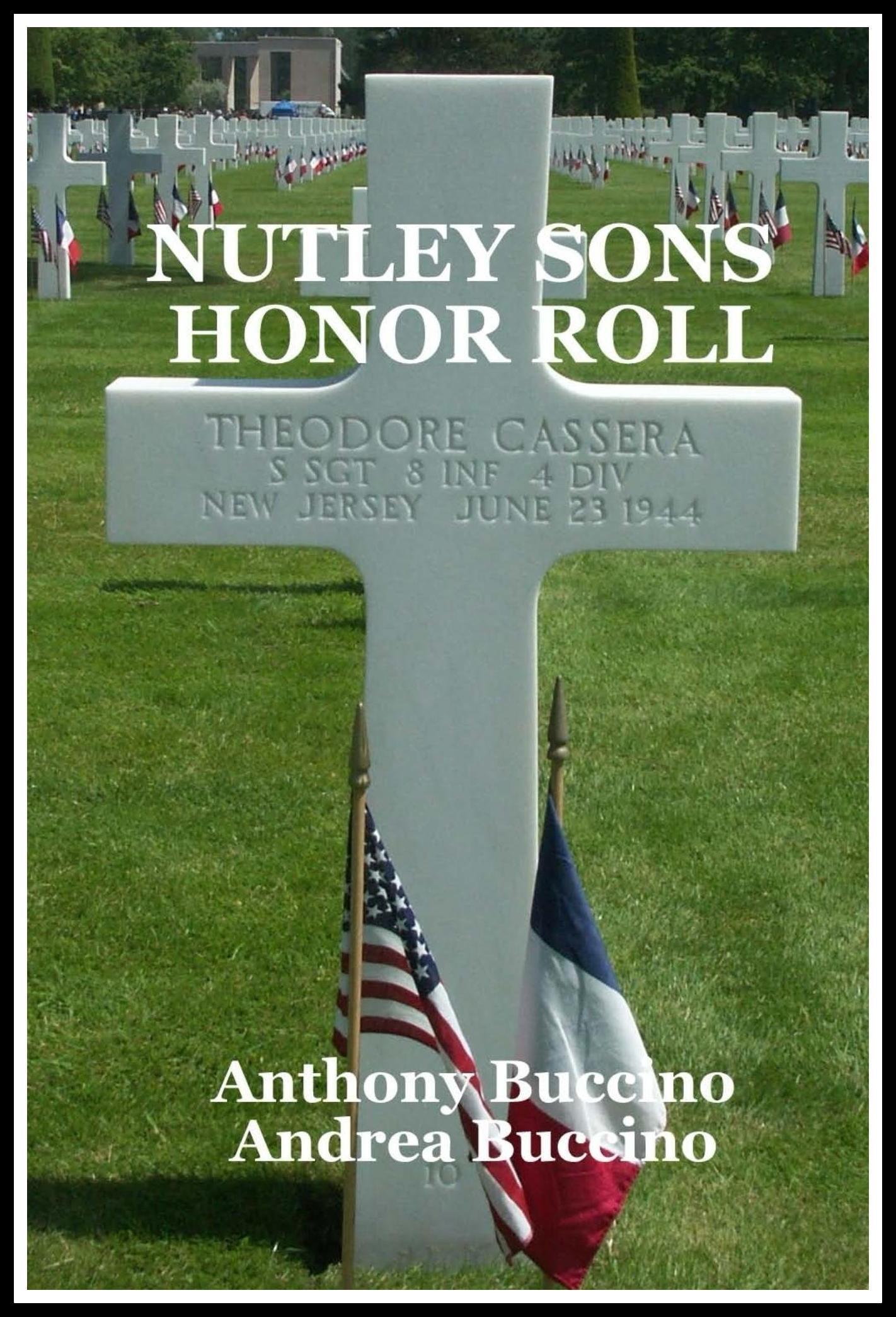|
The Retreat Across
the Jerseys
 SOURCE:
HISTORY OF NUTLEY by Elizabeth Stow Brown, 1907 SOURCE:
HISTORY OF NUTLEY by Elizabeth Stow Brown, 1907
It was the second year of the Revolution, and the Declaration of Independence was but a few months old.
Washington's reverses in New York were disheartening. The battle of Long Island was lost on Aug. 27, 1776. Fort Washington fell Nov. 16 and Washington crossed to Fort Lee.
Cornwallis followed over the Hudson, and the Continental army was ordered to abandon Fort Lee and to retreat to the Delaware, "over the Essex Hills."
Thus began the memorable "Retreat across the Jerseys" when the patriot army under General Washington and the pursuing British under General Lord
Cornwallis marched through the region which we now call Nutley.
Washington had hastened from Fort Lee to Hackensack.
To reach Newark the Passaic River must be crossed. The only available bridge was at Acquackanonck (Passaic) and the village was rumored to be a "Tory
hot-bed."
A detachment was sent ahead to hold the bridge and to send on stores and ammunition to Morristown by way of Great Notch.
Orders were given to destroy the bridge as soon as the army had crossed.
The patriots approached with the British often so near that "the sound of their bugles was heard."
Over the rude wooden bridge they tramped and that evening or the next day a force from the neighborhood destroyed the bridge with axes and saws and
burned the approaches.
Washington spent one anxious night at Acquackanonck, Nov. 21, 1776.
The next day, the 22nd, with 3,500 men he started for Newark along the River Road.
Near the northern limits of our area, his forces divided, one column to continue by the River Road, the other to go "over the hills" to Bloomfield.
There one brigade remained for several days while another went on to Orange and thence to Newark.
Washington spent six days in Newark and on Nov. 28th, proceeded to "Brunswic" (New Brunswick). His headquarters in Newark are uncertain.
Pursuit of the British
Cornwallis pursued in two divisions. One came from Hackensack to
Rutherford, and crossed the Passaic at the ford where Delawanna now is,
camping there for several days.
The rest of the British army followed Washington through Lodi and
Wallington to the bridge to find it destroyed and 3,000 men on guard. They
turned and crossed above Passaic Falls.
Cornwallis spent a week between Passaic and Newark, a week filled with
carousals and revels and forages extending widely inland. He took the
River Road to Newark. "Their advance guards were entering the town by the
time our rear got out, " wrote Washington from "Brunswic."
Flight of the British in 1778
There was another flight of soldiery through this region in 1778, after
the battle of Monmouth, when the British were running before the Americans
to reach the Hudson.
Skirmishes took place at Belleville and at the restored Acquackanonck
Bridge, the red coats escaping across it in the darkness.
The Raiders and Refugees
While the British were in possession of New York and Staten Island, no
part of Jersey suffered more from raids than the banks of the Passaic.
Farms were stripped of crops, cattle and sheep were driven off, and the
defenceless inhabitants on their scattered farms were wantonly murdered in
defending their property.
So great were the terror and sufferings of the people of this region that
a guard of the State Militia was raised for the "Defense of the
Frontiers."
There was a guard house at Belleville and Captain Speer's company was
stationed there.
John
Vreeland (grandfather of Mr. Warren Vreeland of Nutley) was a River
Guard who rode up and down the river bank on the lookout for raiders, or
"refugees" as they were also called, British, Hessian or Tory. He carried
two huge brass-mounted pistols, one of which is now in Mr. Vreeland's
possession, marked, "J. V. 1776." Though he often shot to frighten
"raiders," only once did the young soldier actually kill an invader across
the river.
Captain Abraham Speer
The most striking figure that we can summon from dim colonial times in
this farm and woodland region is the young Dutchman Abram Speer. he was
the eldest of five sons of John Speer of Second River, who owned a large
estate in the center of that village and who was a descendant of John
Hendrick Speer, an original grantee near Hackensak and also one of the
Acquackanonck patentees.
Abram (or Abraham) came over Third River seeking a wife. He found her in
the daughter of one Wouterse or Wouters who had a blacksmith shop at
Povershon.
He was commissioned Captain in the Second Essex Regiment on May 28, 1777,
and stationed at Belleville with this company to "guard the river." It was
his father who from the church steeple shot the "refugee" across the
Passaic.
|

Nutley
Sons Honor Roll: Remembering the men who paid for our freedom
|
 SOURCE:
HISTORY OF NUTLEY by Elizabeth Stow Brown, 1907
SOURCE:
HISTORY OF NUTLEY by Elizabeth Stow Brown, 1907